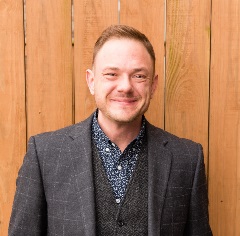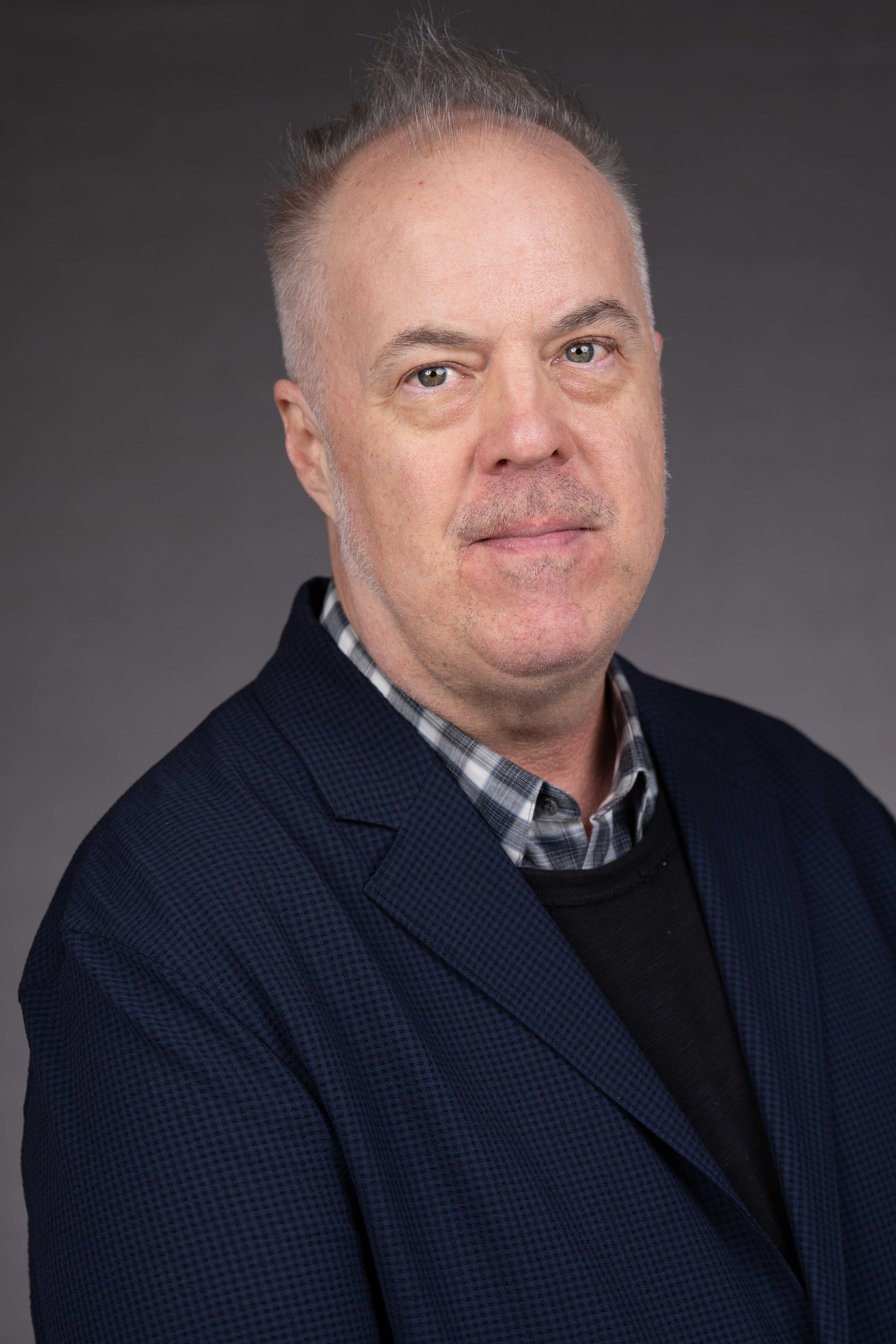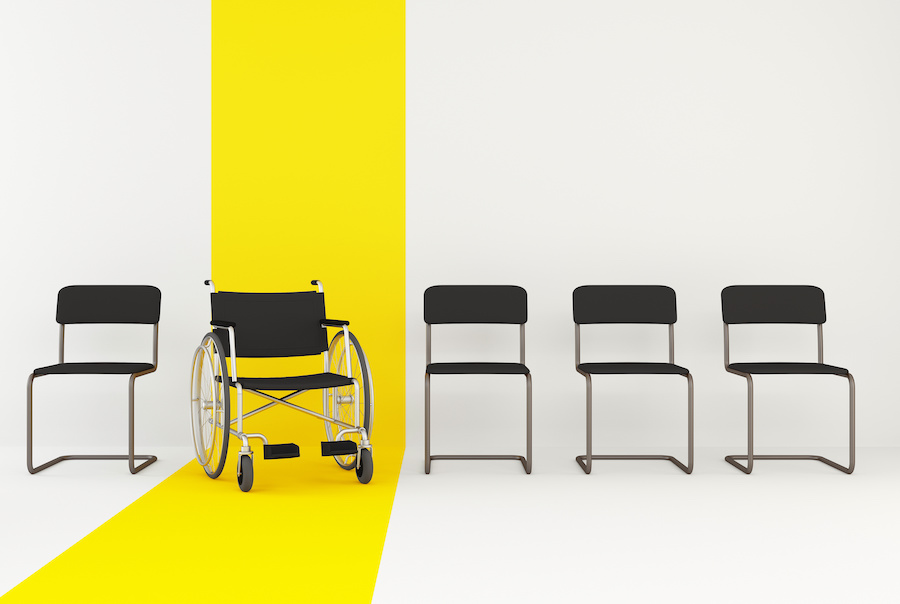Tom Jedlowski on Truly Inclusive Organizations
By John Elsasser
October 2023
Name: Tom Jedlowski
Job title: Director of Communications & Technology, Tennessee Disability Coalition
Location: Nashville, Tenn.
Favorite downtime activity: Camping in one of Tennessee’s amazing state parks
Best way to start a workday: Coffee and Apple News
Any three dinner guests: Journalist Anne Applebaum, disability rights activist Judy Heumann and journalist Jeff Zeleny
Favorite book, movie or streaming series: “The Morning Show” on AppleTV+, “Welcome to Capitol Hill” by Joel Ebert and Erik Schelzig, and “Flack” on Amazon Prime
Apps you can’t do without: The app formerly known as Twitter, Apple News and TN State Parks
Best leadership advice: “Real leaders don’t hold the mic. They pass it.”
Favorite place to travel: Cell coverage dead zones

What was an early career ambition for you?
I stumbled through a few early on: author, psychologist, reporter, movie director, press secretary.
Looking back, it’s clear I was drawn to professions that are known for meeting big challenges with the power of purpose and prose.
When did PR as a career choice surface? You majored in public relations at Northern Michigan University and were a PRSSA member.
There aren’t a lot of Hollywood types flowing out of Flint, Mich., so when one of our own was on the big screen with Michael Moore’s 1989 documentary “Roger & Me,” it was a big deal.
I was only 8, but I vividly remember how the film about the town’s economic collapse after the departure of General Motors made me feel. I was mad, and I wanted someone to answer for what was happening to my family and my hometown.
I grew up to learn that great journalists and visionary documentarians are the ones lifting the human stories and holding truth to power. I wanted to be a part of that, and I wanted to support it.
I searched for a college with a great PR program located far from where I grew up. NMU in the Upper Peninsula checked all the boxes, and it gave me the opportunity to make a name for myself. I was active in PRSSA and our student-run firm, and I had meaningful relationships with all my PR professors.
How did your position with the Tennessee Disability Coalition come about?
In 2015, I was diagnosed with multiple sclerosis. I was terrified, lost, and unfamiliar with MS and the disability community. I was in the prime of my life and facing a serious diagnosis. I was gobsmacked by deep, systemic problems I experienced in the American health-care system as I pursued treatment. I thought I’d done all the “right things.” I went to school, had a “good job” with “good insurance,” but it wasn’t enough to navigate this diagnosis and a health care system that is barely set up to support it.
I wanted to do something that aligned my passion for PR with an organization working to improve life for people with disabilities. That opportunity appeared in 2018 with the Tennessee Disability Coalition. The work is incredibly challenging, but it’s rewarding beyond measure and deeply important to me.
In your role as director of communications and technology, how are you helping serve as an advocate for the disability community?
I have the latitude to help all stakeholders better understand the disability community and the most pressing issues facing us. It’s an important perspective that many — including pre-diagnosis me — don’t always have top of mind. I appreciate the opportunity to help usher these voices to the table.
I get to speak to The Tennessean’s DEI Taskforce, state and federal policy makers, leaders of business and industry, college students, state and national reporters, and, of course, my fellow members of the disability community.
What are some of your current day-to-day responsibilities?
Primarily, I handle media relations. As the foremost disability advocacy agency in Tennessee, we receive a good number of outbound and inbound media requests. I support reporters however I can, often finding (and media training) community members to bring stories to life.
The latter is my favorite. Helping someone feel confident and capable to share their story publicly is why I do this work. If they can reflect on that experience and see that they worked past their nerves and helped to share their experience in a way that changed policy or helped to pass a bill, that’s everything to me.
Often, my work also includes having conversations with reporters about covering our community—not just accurately, but respectfully. It’s important these stories are told without a lens of pity, whataboutism, or baseless inspiration.
In doing so, I’ve been able to forge great relationships with reporters, many of whom seek my input, whether the TDC is involved or not.
What do you see as the biggest misunderstanding when it comes to the disability community?
Just like any of you, we’re simply trying to live our lives.
We shouldn’t be your biggest fear, nor your inspiration. We’ve been around as long as humanity itself, and we’re just trying to make a life in a world that isn’t designed with us in mind.
While the Americans With Disabilities Act was a significant and historic piece of legislation, it protects the bare minimum of accessibility. In other words, don’t think of the ADA as a cure-all but rather as merely a starting point/basic essential.
What are ways that organizations can hire from the disability community while avoiding stereotypical ideas?
Normalize disability. As much as you can, as often as you can.
Start by accommodating disability from the start, whether it’s for an open position or an event you’re hosting. When we see a job application or event registration specifically asking about needed accommodations, we feel seen, and we feel welcomed.
Hiring aside, what are some steps organizations can take to help increase disability representation?
Ensure that your website is accessible to people with disabilities. Even in our digital world, you might be shocked to know how many websites are inaccessible.
From there, get executive buy-in that accessibility is important. Turn the buy-in into an initiative to educate staff and send reminders about why you’re doing it.
What does a truly inclusive organization look like to you?
An organization that prioritizes authenticity and diversity (read: humanity) at every level and uses its influence to push back against laws or policies unaligned with their declared values.
I mention this at a time when many large corporations are relocating or expanding into Tennessee. Some of these transplanted corporations fly the DEI flag higher and bigger than their peers, often virtue signaling with platitudes like “DEI is part of our corporate DNA!” while remaining silent during times of injustice.
A truly inclusive organization actively demonstrates its values every day through its voice and its hiring and business practices.
Nashville is hosting PRSA's ICON 2023 this month. What is the local PR community there like?
Apart from New York or LA, it’s hard to think of a city where more people relocate with “a dollar and a dream” than Nashville.
Of course, many move here to pursue music, but deeply passionate folks flock here from a wide variety of industries. Our common connections are creative passions and our appetite for legendary work — whatever that may be.
The Nashville PRSA Chapter is stacked with incredibly talented professionals. We share a collective “in this together” spirit, which is as true today as it was when I moved here almost 20 years ago.



